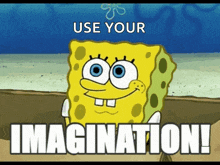FrogReaver
The most respectful and polite poster ever
Why would you assume that I wrote the tl/dr before the rest of the post? Perhaps there lies the confusion.
I didn’t. And besides, what difference does it make if you wrote it before or after? Also, why do you assume I assumed that?
In the post, I present the reasoning that brings me to the conclusion that I summarized . Not something that I "want", but what the PHB says.
Yea, so just pure coincidence that the thing you said you wanted out of the rules is how you ultimately end up reading them, despite the natural language reading being perfectly clear in this case and in conflict with how you read the rules?
There's a section in the OP called "Attacking an Illusion". Of course you can take your action to swing at an illusion if you choose to do so.
Thank you.
However, doing so is different from "interacting", which (it turns out) is a term with a definition, that normally takes an action. If we ignore that definition, and equate attacking with interacting, then the very prominent statement about rolling an Intelligence (Investigation) check is functionally meaningless, because it sets up a challenge that can be failed when tossing a copper piece or making a ranged attack would automatically succeed. That's not "evidence"; it is a conclusion, and one I am happy to discuss if you wish.
The issue with this interpretation is that the ‘physical interaction’ text gives us the reasoning for why physical interaction breaks illusions and that reasoning applies to shooting arrows as well as object interactions - meaning physical interaction here is being used in the natural language sense not some kind of game term sense.





